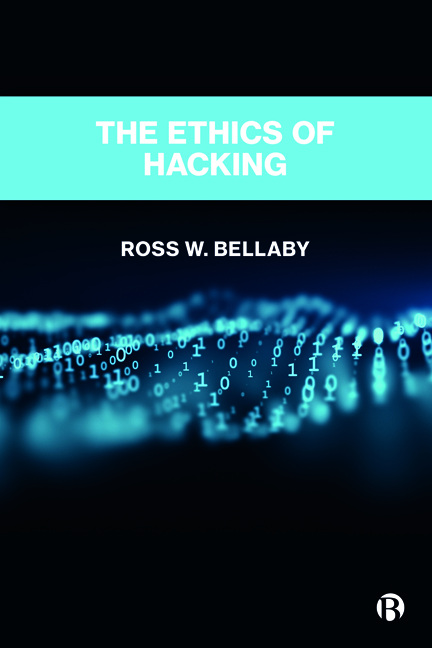Book contents
- Frontmatter
- Dedication
- Contents
- Introduction
- 1 Hacks, Hackers and Political Hacking
- 2 An Ethical Framework for Hacking Operations
- 3 Political Autonomy, the Arab Spring and Anonymous
- 4 Leaks: From Whistleblowing to Doxxing
- 5 Correcting the Failure of the State
- 6 Looking Back, Moving Forward
- Conclusion
- References
- Index
1 - Hacks, Hackers and Political Hacking
Published online by Cambridge University Press: 18 January 2024
- Frontmatter
- Dedication
- Contents
- Introduction
- 1 Hacks, Hackers and Political Hacking
- 2 An Ethical Framework for Hacking Operations
- 3 Political Autonomy, the Arab Spring and Anonymous
- 4 Leaks: From Whistleblowing to Doxxing
- 5 Correcting the Failure of the State
- 6 Looking Back, Moving Forward
- Conclusion
- References
- Index
Summary
Introduction
The rise of the political-hacker phenomenon over the last two decades is something distinctive from instances of simple boasting, ransomware hijackers making money, or chaos creating malcontents. Part of this distinctiveness is both the political agenda these hackers have come to possess, as well as the necessary use of violence as part of them furthering their political end. Importantly, however, the form of this violence, level of negative impact inflicted and the type of targets chosen can all vary dramatically across operations, which can shape whether or not the hack can be justified. Therefore, this chapter will outline a spectrum of political violence, arguing that depending on what the target is, and how and to what extent it is negatively impacted, as well as the associated political context, the level of violence can vary. This will allow different hacks to be placed across a spectrum of political violence. This will enable Chapter 2 to develop a similar spectrum of justification that can determine if and when a particular activity or operation is justified, given the level of violence used compared to the ends and political context. This spectrum approach allows for the diverse set of hacking operations to be examined in greater depth, detailing the political objectives the hackers work towards, the methods used, and those who are impacted and in what ways. This will enable a better understanding of what politically motivated hacking looks like and how the highly varied actions used by hackers can compare and receive different justifications or denouncements according to the situation.
The evolving history of hacking and the birth of a political Anonymous
Online rights and freedoms
Historically, the broad hacker culture finds its origins in the 1950s within MIT's student organization ‘Tech Model Railroad Club’ – a group of students who shared a passion for understanding how things worked that naturally developed into the intellectual challenge of creatively overcoming the limitations of software systems to achieve novel and clever outcomes. Though initially driven by technical curiosity, over the following decades hackers started to use their skills to promote their own political beliefs and agendas (Levy, 1984). These first-generation hackers were broadly motivated by pro-freedom of information, anti-authoritarian, anti-nuclear and anti-capitalist sentiments, with many of these ideals still being pertinent in today's modern hackers.
- Type
- Chapter
- Information
- The Ethics of Hacking , pp. 16 - 31Publisher: Bristol University PressPrint publication year: 2023



